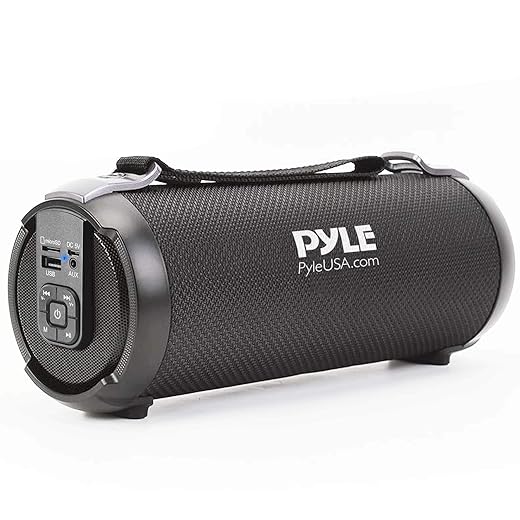







Common Issues with Bluetooth Speakers’ AUX Input and How to Fix Them
Bluetooth speakers have revolutionized the way we listen to music, offering convenience and portability. However, many users encounter issues with the AUX input, which can be a frustrating experience. If you’re grappling with this problem, don’t worry. You’re not alone, and there are solutions to these common issues. In this article, we’ll explore the typical challenges encountered with AUX inputs and provide practical fixes.
1. No Sound from AUX Input
One of the most common issues users face is a complete lack of sound when connecting a device via AUX. Picture this: you’ve set the mood for a gathering, plugged in your speaker, and—silence. What gives?
**Possible Causes:**
– **Loose Connection:** Often, the AUX cable might not be securely plugged in. A simple wiggle can sometimes restore sound.
– **Faulty Cable:** If the cable is worn or broken, no audio will pass through. Try using a different AUX cable to see if this resolves the issue.
– **Incorrect Source Selection:** Some Bluetooth speakers require you to manually switch between Bluetooth and AUX input. Check if your speaker is set to the correct source.
**Solution:** Start with the basics. Ensure that the AUX cable is fully inserted into both the speaker and your audio device. Then, check your speaker settings to confirm that it’s set to AUX mode. If that doesn’t work, try a different cable.
2. Distorted Sound Quality
You’ve connected your device, but the sound coming from your Bluetooth speaker is muffled, distorted, or just plain awful. It’s like trying to listen to a symphony through a tin can—frustrating, to say the least.
**Possible Causes:**
– **Cable Quality:** Low-quality or damaged cables can significantly affect sound quality.
– **Device Settings:** Sometimes, the audio settings on your device may not be optimized for external speakers.
**Solution:** Invest in a high-quality AUX cable. A well-made cable can make all the difference in sound clarity. Additionally, check your device’s audio settings. Increasing the equalizer settings or adjusting the balance can enhance the output significantly.
3. Intermittent Sound or Dropouts
Imagine hosting a party, and every few seconds, the music fades out. This annoying phenomenon, where sound drops in and out, can be incredibly disruptive.
**Possible Causes:**
– **Connection Issues:** A loose connection can lead to intermittent sound.
– **Electrical Interference:** Other electronic devices nearby might interfere with the audio signal.
**Solution:** Ensure that your AUX cable is securely connected. If you’re still experiencing problems, try relocating your speaker away from other electronic devices. Sometimes distance can help eliminate interference.
4. Speaker Not Recognizing the AUX Input
You’ve plugged in your device, and yet your speaker seems oblivious to the connection. It’s like throwing a party and nobody shows up.
**Possible Causes:**
– **Speaker Software:** Some Bluetooth speakers may need a firmware update to properly recognize the AUX input.
– **Compatibility Issues:** Not all audio devices work seamlessly with every speaker.
**Solution:** Check the manufacturer’s website for any firmware updates that might address your issue. Also, try connecting a different device to see if it’s a compatibility issue.
5. Poor Volume Levels
After troubleshooting, you finally get sound, but it’s barely audible. You might feel as if you’re trying to enjoy a concert in a whisper.
**Possible Causes:**
– **Volume Settings:** The volume on either your speaker or the connected device may be too low.
– **Audio Source Quality:** If the audio file is of low quality, it may not output well through the AUX.
**Solution:** Start by adjusting the volume on both your speaker and the connected device. If you’re still struggling, consider using a different audio source or file.
Conclusion
Bluetooth speakers equipped with AUX inputs offer a versatile way to enjoy your favorite tunes. However, common issues like no sound, distorted audio, and poor volume levels can detract from your experience. By understanding the potential causes and applying the suggested solutions, you can troubleshoot these problems effectively. Remember, a little patience and attention to detail can go a long way in ensuring your music plays smoothly.
FAQs
1. Can I use any AUX cable with my Bluetooth speaker?
Most Bluetooth speakers are compatible with standard AUX cables, but it’s advisable to use a high-quality cable for the best sound.
2. How do I switch my Bluetooth speaker from Bluetooth to AUX mode?
Refer to your speaker’s manual. Typically, there’s a dedicated button or a switch to toggle between Bluetooth and AUX.
3. What should I do if my speaker’s AUX input is damaged?
If the AUX input is physically damaged, it’s best to consult with the manufacturer for repair options or consider replacing the speaker.
